
Lakeside: The Heartbeat of Pokhara
Nestled on the banks of the serene Phewa Lake, Lakeside in Pokhara is a vibrant neighborhood that offers a perfect blend of natural beauty and cultural charm. This picturesque area is a haven for tourists seeking a peaceful escape with stunning mountain views and a laid-back atmosphere. Whether you're a nature enthusiast, an adventure seeker, or someone looking to unwind, Lakeside has something for everyone. Stroll along the scenic lakeside promenade, where you can enjoy the cool breeze and watch the boats gently glide across the water. The area is dotted with cozy cafes, eclectic souvenir shops, and a variety of restaurants serving both local and international cuisine. For the more adventurous, Lakeside serves as the gateway to many thrilling outdoor activities. From paragliding over the lake with stunning views of the Annapurna range to boating on the tranquil waters, there's no shortage of excitement. Don't miss a visit to the World Peace Pagoda, perched high above the city, offering panoramic views of Pokhara and the surrounding landscapes. As the sun sets, Lakeside comes alive with a vibrant nightlife. The streets are illuminated with colorful lights, and the sounds of live music fill the air. It's the perfect time to relax with a drink at one of the many lakeside bars or enjoy a traditional Nepali meal while soaking in the ambiance. Lakeside in Pokhara is not just a destination; it's an experience that stays with you long after you leave.
Local tips in Lakeside
- Visit early in the morning to enjoy the tranquility of Phewa Lake and catch the reflection of the Annapurna range in the water.
- Rent a bicycle to explore the neighborhood at your own pace and discover hidden gems along the way.
- Don't miss the local markets for unique souvenirs and handcrafted items.
- Try the local cuisine, especially momos and dal bhat, at traditional Nepali restaurants.
- Take a boat ride to the Tal Barahi Temple, located on an island in the middle of Phewa Lake.
Lakeside: The Heartbeat of Pokhara
Nestled on the banks of the serene Phewa Lake, Lakeside in Pokhara is a vibrant neighborhood that offers a perfect blend of natural beauty and cultural charm. This picturesque area is a haven for tourists seeking a peaceful escape with stunning mountain views and a laid-back atmosphere. Whether you're a nature enthusiast, an adventure seeker, or someone looking to unwind, Lakeside has something for everyone. Stroll along the scenic lakeside promenade, where you can enjoy the cool breeze and watch the boats gently glide across the water. The area is dotted with cozy cafes, eclectic souvenir shops, and a variety of restaurants serving both local and international cuisine. For the more adventurous, Lakeside serves as the gateway to many thrilling outdoor activities. From paragliding over the lake with stunning views of the Annapurna range to boating on the tranquil waters, there's no shortage of excitement. Don't miss a visit to the World Peace Pagoda, perched high above the city, offering panoramic views of Pokhara and the surrounding landscapes. As the sun sets, Lakeside comes alive with a vibrant nightlife. The streets are illuminated with colorful lights, and the sounds of live music fill the air. It's the perfect time to relax with a drink at one of the many lakeside bars or enjoy a traditional Nepali meal while soaking in the ambiance. Lakeside in Pokhara is not just a destination; it's an experience that stays with you long after you leave.
Iconic landmarks you can’t miss
Devi's Fall Pokhara
Explore the breathtaking Devi's Fall in Pokhara, a stunning natural wonder that enchants visitors with its cascading waters and serene beauty.
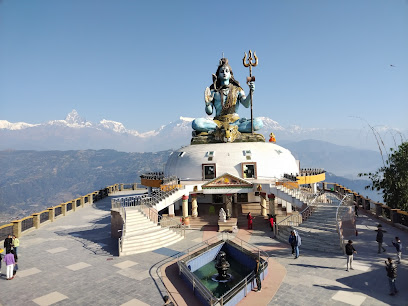
Pokhara Lakeside
Experience the breathtaking beauty and vibrant culture of Pokhara Lakeside, where adventure meets tranquility by the serene Phewa Lake.
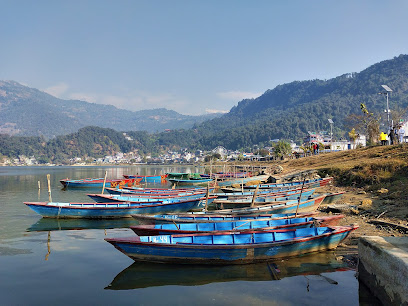
World Peace Pagoda
Experience serenity and breathtaking views at the World Peace Pagoda, a symbol of peace in the heart of Pokhara, Nepal.
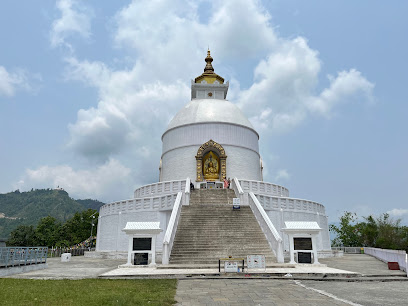
Mahendra Cave
Discover the natural wonders of Mahendra Cave in Pokhara, where stunning geological formations and rich history await your exploration.
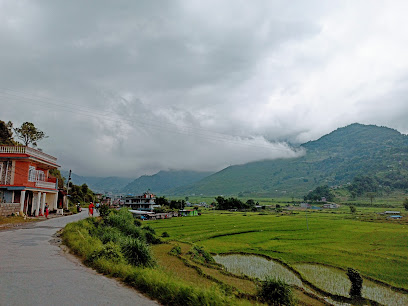
Tal Barahi Temple, Pokhara
Discover the spiritual serenity of Tal Barahi Temple, a captivating Hindu temple on Phewa Lake in Pokhara, Nepal.
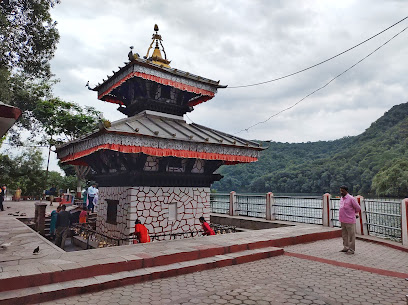
Basundhara Park
Explore the tranquility of Basundhara Park in Pokhara, a picturesque green space perfect for nature walks, picnics, and stunning lakeside views.
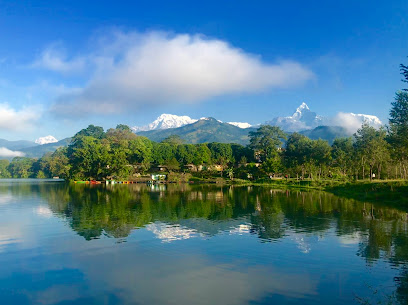
Tutunga View Point
Experience the awe-inspiring beauty of the Himalayas at Tutunga View Point in Pokhara, a must-visit destination for all nature lovers and adventure seekers.
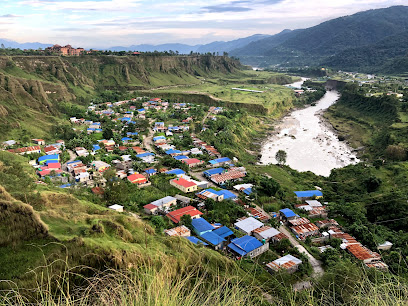
Regional Museum
Discover the rich cultural heritage of Nepal at the Regional Museum in Pokhara, a must-visit destination for history and art enthusiasts.
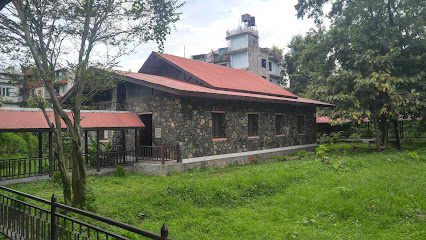
Pokhara Nepal
Discover the breathtaking beauty of Pokhara, Nepal, a stunning tourist attraction nestled in the foothills of the Himalayas with lakes, mountains, and adventure.
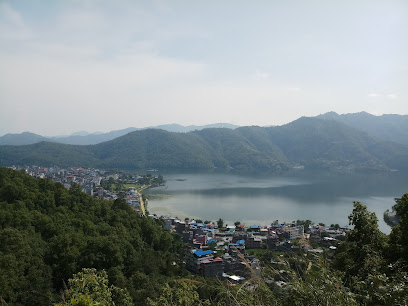
Ratna Mandir
Explore Ratna Mandir, a serene historical landmark by Phewa Lake in Pokhara, capturing the essence of Nepalese culture and spirituality.
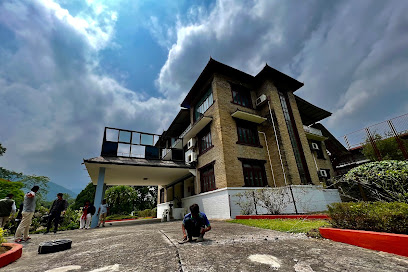
Unmissable attractions to see
Phewa Lake View Point
Discover stunning views at Phewa Lake View Point in Pokhara, where serene waters meet majestic mountains in a perfect travel experience.
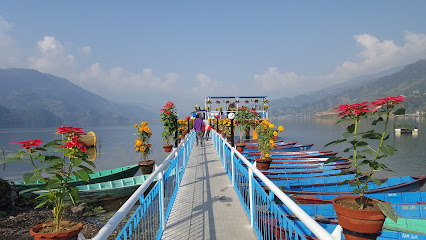
Team 5 Nepal paragliding
Experience the thrill of paragliding in Pokhara, with stunning views of the Annapurna Mountain Range and Phewa Lake.
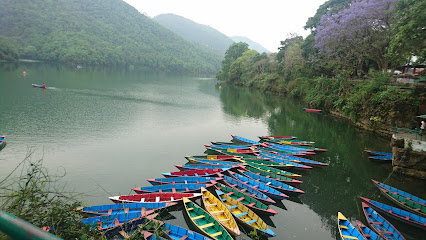
Tourism Pokhara
Discover the breathtaking beauty and vibrant culture of Pokhara, Nepal's gateway to the Himalayas and a haven for adventure seekers and nature lovers.
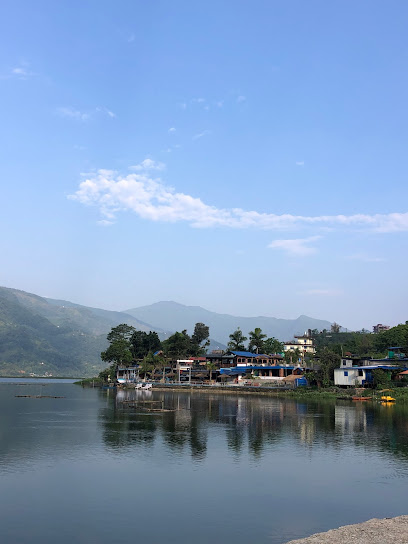
Essential places to dine
Moondance Restaurant & Bar
Experience delightful dining at Moondance Restaurant & Bar in Pokhara with stunning lake views and unique culinary creations.
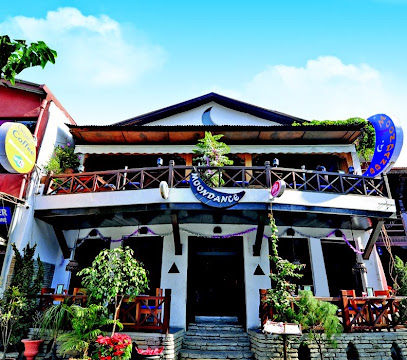
Caffe Concerto
Experience authentic Italian cuisine at Caffe Concerto in Pokhara – where flavor meets ambiance in a delightful setting.
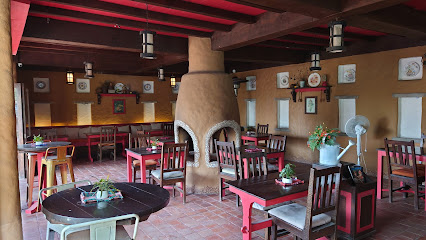
Byanjan
Experience exceptional fine dining at Byanjan in Pokhara - where traditional Nepalese flavors meet modern culinary art.
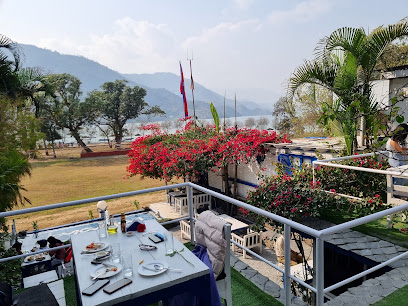
Mo2'S Delights Pokhara ( Now MoM's Café & Bar)
Experience the flavors of Nepal at MoM's Café & Bar in Pokhara - where delicious meat dishes meet inviting ambiance.
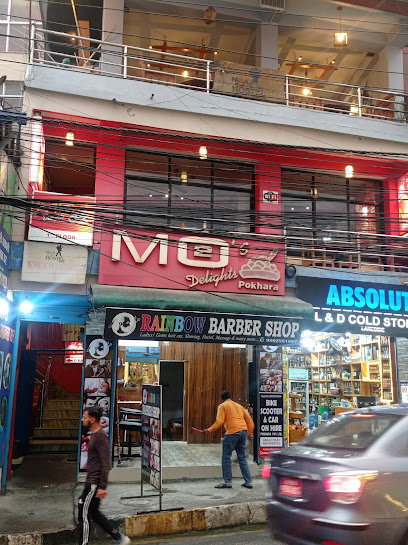
Natssul Korean Restaurant
Discover the flavors of Korea at Natssul Korean Restaurant in Pokhara – where barbecue meets tradition amidst stunning lakeside views.
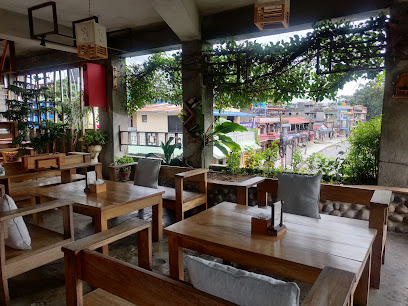
MED 5 Restaurant
Discover the flavors of Nepal at MED 5 Restaurant - a culinary gem nestled by the serene lakeside in Pokhara.
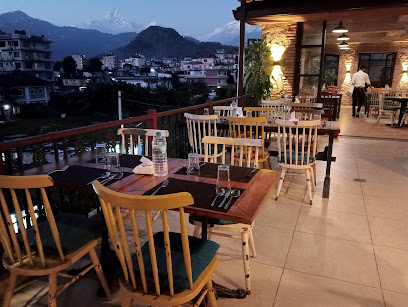
LW BAR AND RESTAURANT (little windows)
Experience delicious vegan cuisine and stunning lakeside views at LW Bar and Restaurant in Pokhara - your perfect dining destination.
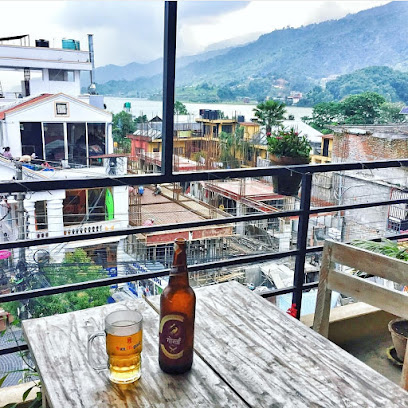
Soul Origin Cafe and Restaurant
Experience delightful dining at Soul Origin Cafe & Restaurant in Pokhara - where local flavors meet international cuisine amidst breathtaking lakeside views.
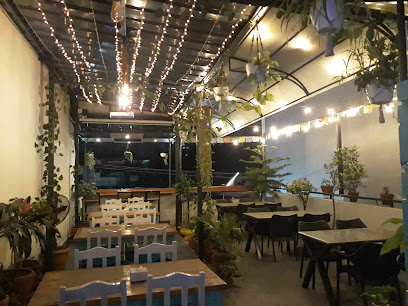
Restaurant Once Upon A Time
Discover authentic Nepalese flavors at Once Upon A Time in Pokhara – where every dish tells a story.
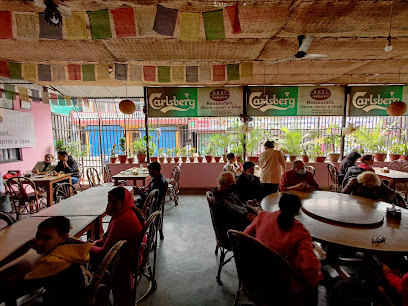
Great Wall Chinese Restaurant(長城中餐廳 博卡拉)
Experience authentic Chinese cuisine at Great Wall Chinese Restaurant in Pokhara – where tradition meets flavor in every dish.
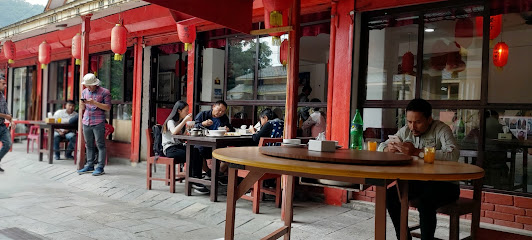
Markets, malls and hidden boutiques
Bishal Bazar - Pokhara
Discover unique shopping experiences, local cuisine, and the vibrant culture of Pokhara at Bishal Bazar, the city's premier shopping destination.
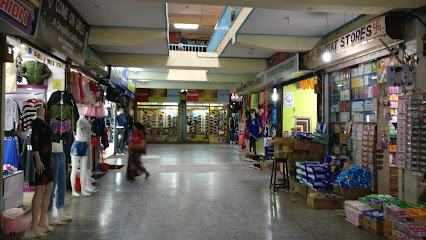
LOVE LOVE Pashmina & Gems
Explore exquisite pashmina and stunning gemstones at LOVE LOVE Pashmina & Gems, the premier shopping destination in Pokhara, Nepal.
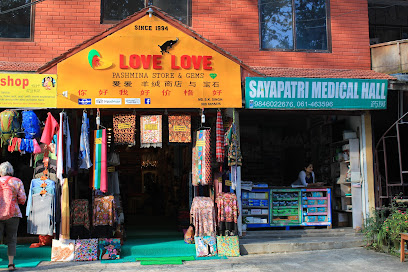
Earthly Treasures Pokhara - Dihikopatan Lakeside
Explore a delightful collection of handcrafted gifts, art, and accessories at Earthly Treasures Pokhara, a unique shopping destination in Nepal.
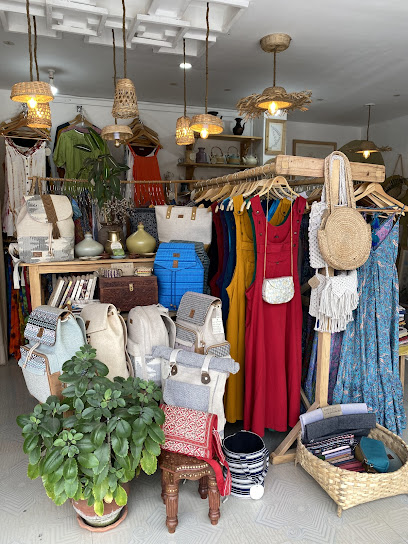
Earthly Treasures Pokhara
Discover authentic Nepalese handicrafts and unique souvenirs at Earthly Treasures Pokhara, a gift shop that captures the essence of local artistry.
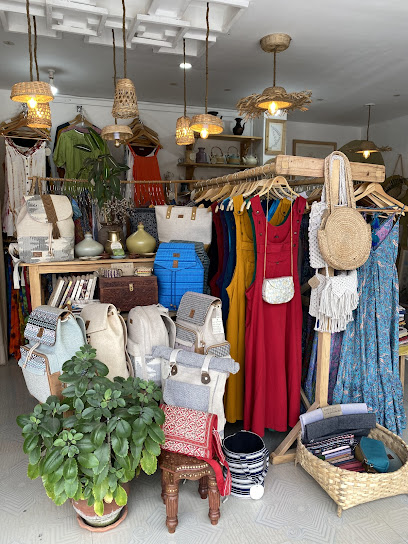
Yes helping hands handicraft
Explore Yes Helping Hands in Pokhara for unique clothing and handcrafted treasures that embody the spirit of Nepal's rich artisan culture.
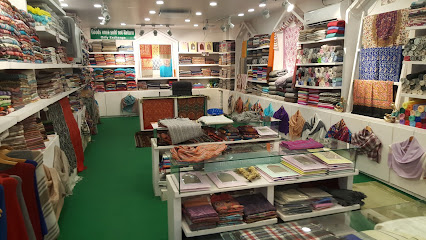
Himalayan Threads Handicrafts Shop
Explore the rich cultural heritage of Nepal at Himalayan Threads Handicrafts Shop in Pokhara, where exquisite craftsmanship meets authentic artistry.
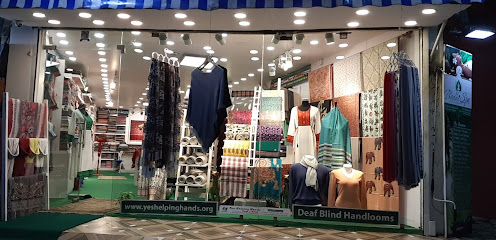
Lakeside Center
Experience the vibrant shopping scene at Lakeside Center in Pokhara, where local culture meets modern shopping and dining.
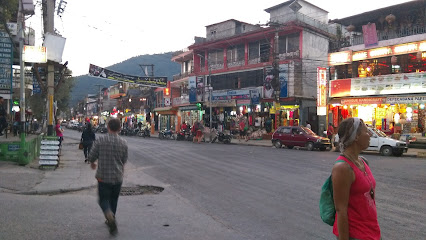
Am pm handicrafts
Explore the essence of Nepali craftsmanship at Am pm Handicrafts in Pokhara's lakeside, offering unique souvenirs and exquisite handmade treasures.
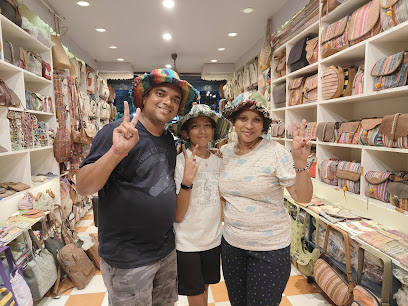
Store of Hemp Clothes (Also Cloth Repair, Altering, fitting service)
Discover sustainable fashion at Pokhara's Store of Hemp Clothes, offering organic apparel and expert alteration services in a vibrant lakeside setting.
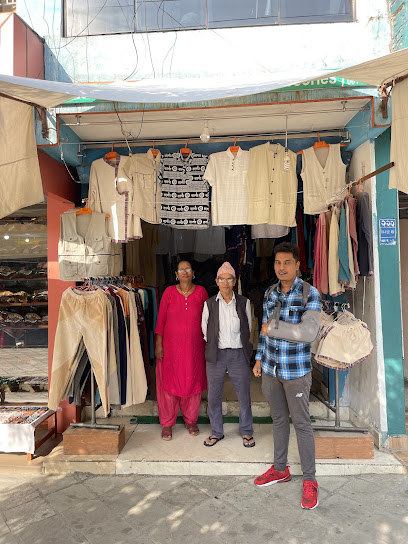
Lakeside, Pokhara
Discover the enchanting beauty of Lakeside, Pokhara, where stunning landscapes meet vibrant culture and unforgettable experiences await.
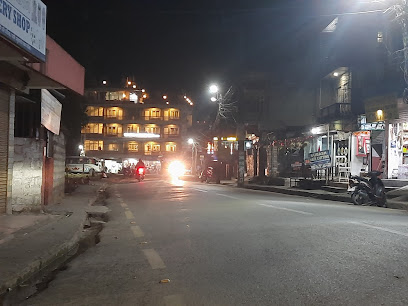
Zaroo The Great (Cashmere & Souvenir Shop)
Discover authentic cashmere and exquisite souvenirs at Zaroo The Great in Pokhara, where quality meets culture.
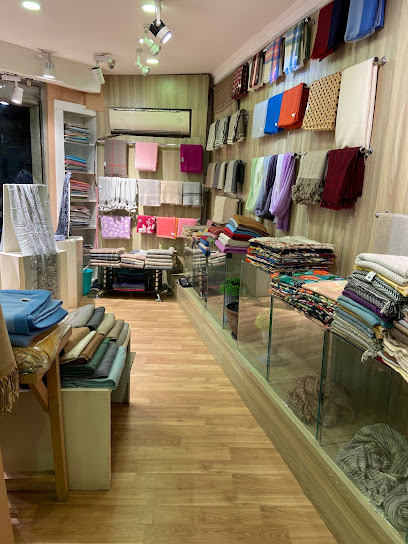
Fishtail Book Shop & Souvenir Store
Explore an enchanting blend of literature and local crafts at Fishtail Book Shop & Souvenir Store in the heart of Pokhara.
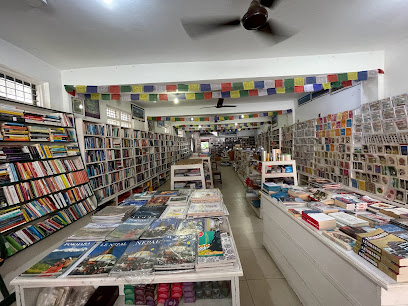
Zaroo The Great.
Discover unique Nepalese craftsmanship at Zaroo The Great, an essential shopping destination in Pokhara for authentic souvenirs and gifts.
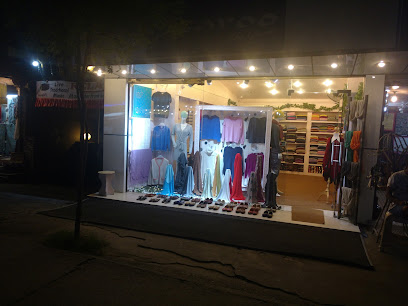
New Grand Art Inn Pashmina Store
Discover exquisite pashmina shawls and scarves at New Grand Art Inn Pashmina Store in Pokhara, a treasure trove of Nepalese craftsmanship.
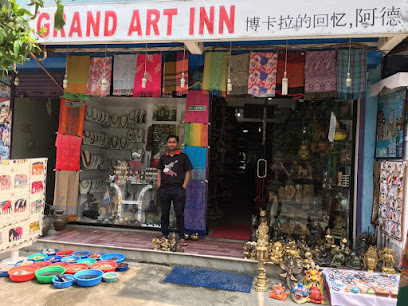
Nepali Creation Souvenirs Shop
Discover authentic Nepali souvenirs at Nepali Creation Souvenirs Shop, a treasure trove of unique handicrafts in the heart of Pokhara.
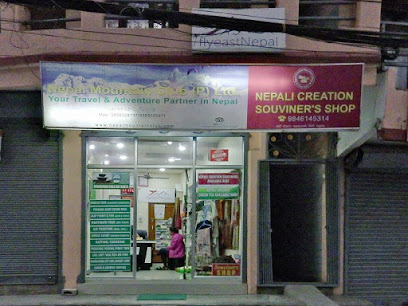
Essential bars & hidden hideouts
Busy Bee Cafe
Experience the vibrant atmosphere and delicious food at Busy Bee Cafe, a must-visit spot for tourists in Pokhara, Nepal.
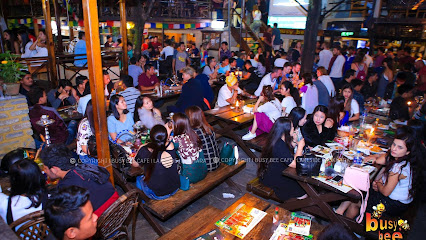
Krazy Gecko
Experience the vibrant atmosphere and delicious cuisine at Krazy Gecko, a top bar and restaurant in the heart of Pokhara, Nepal.
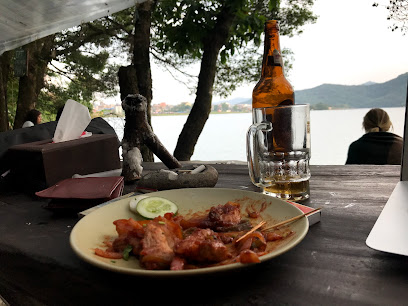
Paradiso Pokhara
Discover the vibrant atmosphere of Paradiso Pokhara, where delightful cuisine meets lively entertainment along the scenic lakeside.
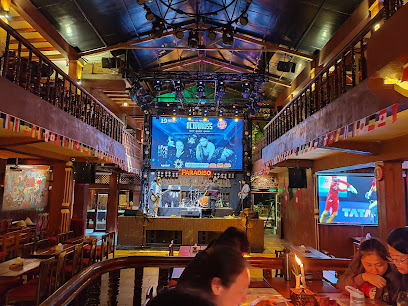
Irish Pub
Visit the Irish Pub in Pokhara for a delightful mix of local dishes, lively entertainment, and a welcoming atmosphere perfect for tourists and locals alike.
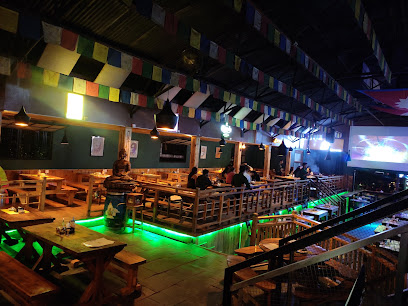
Rolling Stones Rock Bar
Experience the vibrant nightlife of Pokhara at Rolling Stones Rock Bar, where exceptional food, live music, and a lively atmosphere await.
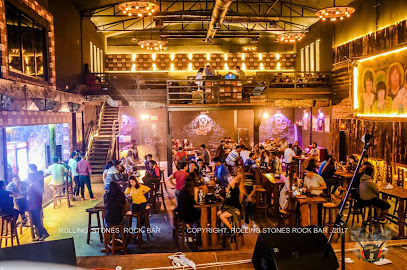
Bamboo Bar Cafe
Experience the vibrant ambiance and stunning lakeside views at Bamboo Bar Cafe, Pokhara's top destination for cocktails and culinary delights.
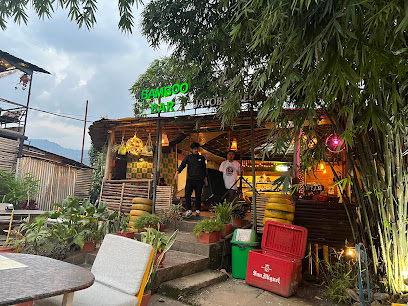
The Boss Restaurant
Discover the culinary delights of The Boss Restaurant in Pokhara, where barbecue, grilled specialties, and stunning lakeside views await.
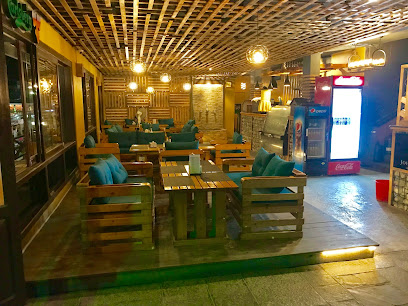
Oxygen Lounge Bar
Discover the vibrant atmosphere of Oxygen Lounge Bar in Pokhara, where stunning views meet a diverse drink menu and exciting events.
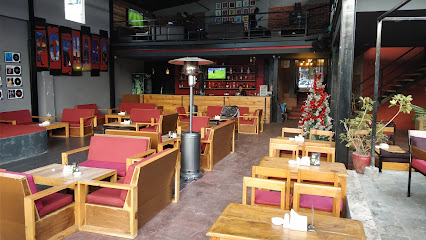
Kotas bar and grill
Discover the flavors of Nepal at Kotas Bar and Grill, where delicious meals meet breathtaking lakeside views in the heart of Pokhara.
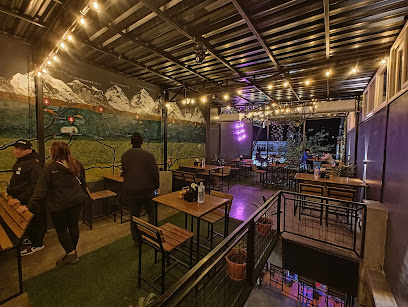
Aura Lounge Bar
Experience the perfect blend of relaxation and nightlife at Aura Lounge Bar, overlooking the stunning Phewa Lake in Pokhara.
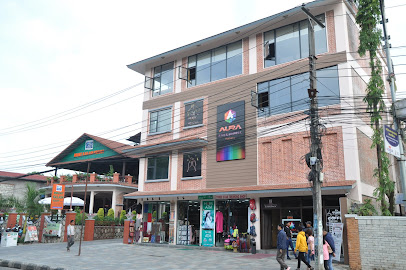
Local Phrases
-
- Helloनमस्ते
[namaste] - Goodbyeबिदा
[bida] - Yesहो
[ho] - Noहोइन
[hoin] - Please/You're welcomeकृपया
[krupaya] - Thank youधन्यवाद
[dhanyabad] - Excuse me/Sorryमाफ गर्नुहोस्
[maaf garnuhos] - How are you?तिमीलाई कस्तो छ?
[timilai kasto chha?] - Fine. And you?राम्रो छ। तिमी?
[ramro chha. timi?] - Do you speak English?तिमी अंग्रेजी बोल्नुहुन्छ?
[timi angreji bolnuhunchha?] - I don't understandमलाई सम्झिन्न
[malai samjhinna]
- Helloनमस्ते
-
- I'd like to see the menu, pleaseकृपया मेनु हेर्न दिनुहोस्
[krupaya menu hern dinuhos] - I don't eat meatम भांसा खान्न
[ma bhasa khann] - Cheers!चियर्स!
[chiyars!] - I would like to pay, pleaseकृपया भुक्तानी गर्न चाहन्छु
[krupaya bhuktani garna chahanchu]
- I'd like to see the menu, pleaseकृपया मेनु हेर्न दिनुहोस्
-
- Help!मदत गर्नुहोस्!
[madat garnuhos!] - Go away!दूर जानुहोस्!
[dur januhos!] - Call the Police!प्रहरी फोन गर्नुहोस्!
[prahari phon garnuhos!] - Call a doctor!डाक्टरलाई फोन गर्नुहोस्!
[daktar lai phon garnuhos!] - I'm lostम बिर्सेको छु
[ma birseko chu] - I'm illमलाई बिरामी छ
[malai birami cha]
- Help!मदत गर्नुहोस्!
-
- I'd like to buy...म खरीद गर्न चाहन्छु...
[ma kharid garn chahanchu...] - I'm just lookingम सिर्जना गरिरहेको छु
[ma sirjana gari raheko chu] - How much is it?यसको मूल्य कति हो?
[yasko mulya kati ho?] - That's too expensiveयो धेरै महँगो छ
[yo dherai mahango cha] - Can you lower the price?के तपाईं मूल्य कम गर्न सक्नुहुन्छ?
[ke tapai mulya kam garn saknuhunchha?]
- I'd like to buy...म खरीद गर्न चाहन्छु...
-
- What time is it?हाम्रो समय कति बजेको छ?
[hamro samay kati bajeko cha?] - It's one o'clockयो एक बजेको छ
[yo ek bajeko cha] - Half past (10)दस बजे अर्ध गरिसकेको छ
[das baje ardha garisakeko cha] - Morningबिहान
[bihan] - Afternoonदिउँसो
[diunso] - Eveningसाँझ
[sanh] - Yesterdayहिजो
[hijo] - Todayआज
[aaj] - Tomorrowभोलि
[bholi] - 1एक
[ek] - 2दुई
[dui] - 3तीन
[tin] - 4चार
[char] - 5पाँच
[pach] - 6छ
[chha] - 7सात
[saat] - 8आठ
[aath] - 9नौ
[nau] - 10दस
[das]
- What time is it?हाम्रो समय कति बजेको छ?
-
- Where's a/the...?यहाँ कहाँ...?
[yaha kaha...?] - What's the address?ठेगाना के हो?
[thegana ke ho?] - Can you show me (on the map)?तपाईं मलाई देखाउन सक्नुहुन्छ (नक्सामा)?
[tapai malai dekhauan saknuhunchha (naksama)?] - When's the next (bus)?अर्को (बस) कहिले आउँछ?
[arko (bas) kahile aunhcha?] - A ticket (to ....)टिकट (.... को लागि)
[tikat (.... ko lagi)]
- Where's a/the...?यहाँ कहाँ...?
History of Lakeside
-
Lakeside, located on the banks of Phewa Lake, has roots that trace back to the early settlements around the lake. Historically, this area was inhabited by the indigenous Gurung community, who relied on fishing and agriculture for their livelihoods. The natural beauty and resources of the lake made it an attractive location for these early inhabitants, leading to the establishment of small settlements along its shores.
-
During the 18th and 19th centuries, Lakeside became a significant stop along the trade routes connecting India and Tibet. Merchants and travelers frequented the area, leading to the establishment of trade posts and inns. This influx of visitors contributed to the growth of a vibrant local economy and the cultural exchange between diverse groups, including locals, traders, and trekkers.
-
The 1970s marked a turning point for Lakeside with the advent of international tourism. The establishment of trekking routes to the Annapurna region brought an influx of backpackers and adventure seekers. Small guesthouses, cafes, and shops began to emerge, transforming Lakeside into a bustling hub for tourists. This period solidified Lakeside's reputation as a prime destination for travelers seeking both adventure and relaxation.
-
Lakeside is a melting pot of cultures, reflecting the diverse heritage of Nepal. The annual festivals, such as the *Tihar* and *Dashain*, showcase traditional Gurung customs alongside influences from other ethnic groups. The vibrant local culture is expressed through music, dance, and art, drawing both locals and tourists into the colorful celebrations that take place throughout the year.
-
In recent years, Lakeside has faced environmental challenges due to increased tourism and urban development. The community has responded with initiatives aimed at preserving the lake's ecosystem, including cleanup campaigns and sustainable tourism practices. Local organizations work to raise awareness about environmental conservation, ensuring that Lakeside remains a beautiful and sustainable destination for future generations.
Lakeside Essentials
-
Lakeside is easily accessible from various neighborhoods in Pokhara. If you are arriving from the Pokhara Airport, you can take a taxi or a local bus, which will take approximately 15 to 20 minutes. From the Pokhara Bus Park, local taxis and rickshaws are available for transport to Lakeside, typically taking around 10 to 15 minutes. Walking is also an option if you're staying nearby, as the area is pedestrian-friendly.
-
Lakeside is primarily pedestrian-friendly, making walking the best way to explore its shops, cafes, and attractions. For longer distances, you can rent a bicycle or scooter from one of the local rental shops. Taxis and cycle rickshaws are also available and can be hailed easily. Note that public buses are less frequent in this area; however, they can be used to travel to other parts of Pokhara.
-
Lakeside is generally safe for tourists, but standard precautions should be taken. Avoid walking alone at night in poorly lit areas. Petty crimes like pickpocketing can occur, especially in crowded markets. It's advisable to be cautious around the lakeside promenade after dark, where opportunistic thefts can happen. Always keep your belongings secure and be mindful of your surroundings.
-
In case of an emergency, dial 100 for police assistance or 102 for ambulance services. There are hospitals and clinics in Pokhara that can provide medical attention. It is recommended to have travel insurance that covers health emergencies. For minor medical needs, pharmacies are available throughout Lakeside.
-
Fashion: Do dress modestly, especially when visiting temples or local homes. Avoid overly revealing clothing. Religion: Do respect local customs; remove shoes before entering religious sites. Public Transport: Do be courteous on local transport; offer your seat to the elderly. Don't eat or drink on public transport. Greetings: Do greet locals with 'Namaste' and a slight bow; it's a sign of respect. Eating & Drinking: Do try local dishes and beverages. Don't refuse food offerings, as it may be considered impolite.
-
To experience Lakeside like a local, visit the bustling lakeside markets early in the morning for fresh produce and local handicrafts. Engage with shopkeepers and ask about local stories or recommendations. Take a walk along the lakeside at sunrise or sunset for breathtaking views. For a unique experience, consider joining a local cooking class or yoga session offered by local establishments.
Nearby Cities to Lakeside
-
Things To Do in Bandipur
-
Things To Do in Gorkha
-
Things To Do in Chitwan
-
Things To Do in Lumbini
-
Things To Do in Kathmandu
-
Things To Do in Patan
-
Things To Do in Bhaktapur
-
Things To Do in Nagarkot
-
Things To Do in Namche Bazaar
-
Things To Do in Patna
-
Things To Do in Lucknow
-
Things To Do in Varanasi
-
Things To Do in Kanpur
-
Things To Do in Darjeeling
-
Things To Do in Siliguri











